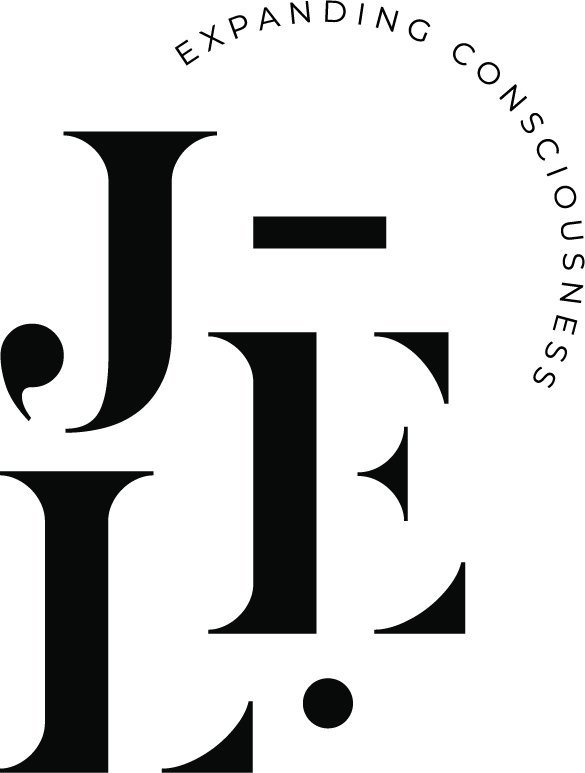Module One - Intuition, Intention & motivation
OBJECTIVES:
Discover what intuition is.
Learn to question your motivation and refine your intentions to prevent self-sabotage
Grasp how to create and hone powerful intentions so you can trust them without hesitation. You will be asked to refer back to this in module six
Understand the importance of acknowledgement on the road to manifestation.
intuition is your inner tutor
As the name suggests your INNER TUTOR is that ‘inside person’ that gathers and learns from the mental, physical and spiritual energies permeating through all of your senses. It’s job is to make sense of this incoming energy and information so as to guide you appropriately. A deeper connection to, and understanding of, your inner tutor can grow as you continue through the modules of this course. The more you progress the more you will sense a shift in relationship between you and your ‘inside person’. Trust grows and shift happens unconsciously as the validation you receive solidifies your belief.
Setting an intention is creating an opportunity to direct the potent energy of creation towards your goal.
Intentions bend reality
Intentions also create what can look like miracles. However before starting, there’s one more step to take before letting you loose with your intentions. Check in with your motivation and the things you truly value in life. Learning to know thyself and being clear about what motivates you is often a road that isn’t easy to go down, but it leads you to a beautiful destination.
win win
If motivations are solely for individual gain, without considering the greater good, they tend to have the running mate called ‘fear of loss’. When fear of loss enters the race the goal becomes difficult and often impossible to reach.
Even when we think we are motivated to help others, our goal is often muddied by our own gain chocolate coated with unconscious guilt to avoid appearing selfish. This is trickier to find, but equally sabotaging to the goal, so worth having a look for. Once exposed you can own it, or change it as you deem fit.
The ideal motivation is win-win, where there is a healthy balance of worthy self gain, as well as a benefit for others, which creates a balanced feeling and a sense of mental wellness. Mental Health is KING!
Our Heart Knows
What is our honest motivation? Why do we want to do the things we want to do?
Taking these steps will help you create goals that are fueled by win-win outcomes while not being compromised by fear of loss, guilt and shame that can accompany self gain.
1. Sit quietly and in a comfortable position, ideally with your eyes closed and focus on your breath.
2. Contemplate the intention for your goal, use short, simple sentences, be mindful of your words. Ask is this good for my mental and physical health.
3. Having decided on your goal, ask yourself why you want that goal. Give yourself time to answer the ‘why’. This is important so keep asking yourself why, until the answer is clear. (you could start with what you would like to gain from this course)
4. Write down your intention as a gain. For example, if you want to sell something, rather than thinking of it as something to sell and therefore lose, think of gaining a suitable buyer at the ideal price.
5. Imagine how it would feel to have it actually happen and focus on the feelings as if it’s already happened. Visualise them and invite the excitement you may feel to envelope you. Encourage those feelings to grow for a few minutes.
6. Acknowledge how you’d feel and what you’d do after achieving that goal. This can bring to mind anything that feels easy or not so easy. If there are any feelings of dis-ease, explore those.
7. Revise any intention that doesn’t feel right . Re-write your intention clearly until you do feel comfortable clear and calm about it.
Unconscious
fear of loss
Can be alleviated by repeating these phrases
The best that can happen, will happen.
If I don’t achieve this goal it was a lucky escape from something that was not good for me.
Something or someone better for me, will come to me instead.
I am open to receive all that is good for me.
Unconscious guilt associated with self-gain
Is often a thorn in the side of people following a spiritual path. It can be alleviated by repeating these phrases
Everything I need will come to me because I deserve it.
I am worthy to receive and to be valued.
Others feel the same happiness when I receive from them, that I feel when I give to them.
Reciprocity ( to give and receive mutually) is a win-win
When you speak to yourself, it does have an affect on your body, even if your head doesn’t believe it at first. As your body accepts the information, because you repeat it, your body will relax and in time your head will accept it as well! It’s a feedback loop. Talking to yourself is good magic!
How to make a clear intention
Words are magic, that’s why we spell them.
When outlining your intention, use goal-focused words that define exactly what you want, and NOT what you don’t want. This may seem obvious, yet often our words are outside of our awareness. So often the words we habitually use in that gap outside of our awareness, are the ones that manifest. Mind the Gap!
EG. If a person were to say “l want to lose weight”, their focus is being directed towards two things they unconsciously don’t want. Unfortunately this intention is confusing and often has the opposite effect of what they want to achieve.
1. If they focus on LOSS the energy evokes a sense of loss or failure as well as an internal struggle between wanting to lose weight, while subconsciously igniting the fear of loss; this can create yo-yo weight loss, then weight gain, as the struggle plays out. It can lower your frequency.
2. Also by focussing on WEIGHT, they attracts weight and heaviness, so are liable to gain even more weight as it can also lower your frequency.
Note. Although physically opposites do attract, when it comes to energy like attracts like.
So if that person were to use goal-focused words describing the goal they really want, they might say “I want to be lighter, slimmer or healthier. These words attract a sense of lightness, slimness and higher frequency.
Understand how important clarity of intention is
Take for example an architect drawing out the detailed plans to build a house. Without clarity, can you imagine what the house may look like? Even with the most sincere motivation to build a house, the results would be sketchy and incomplete, or even if the house is built somehow, it’s unlikely to be what was wanted.
Acknowledgement fast-tracks growth
At the end of a week or month after setting an intention, it’s useful to reflect back on your intention. Check in with your feelings and explore the results. Acknowledge any part of the intention that has manifested, however small it may be. Your acknowledgement is like water to help a seed of intention to grow. It’s also good to acknowledge your progress periodically throughout this course. It truly helps you to see your progress and motivates you to move forward consistently.
water your seed
Your acknowledgment is like water to a seed
THE IMPORTANCE OF KNOWING YOURSELF
When we intend for a goal and it manifests, we feel like a winner. But what if you notice that your intention did manifest, but you feel disappointed instead of validated because no one else appreciates what you did. It can feel like whatever you do is wrong.
Make a list of the things you value, between 3 and 5 core values. The things that are most important to you. Then figure out how to live by those values. This makes decision making much easier and motivation stronger.
When your motivation isn’t clearly defined, perhaps your unconscious goal is different from your conscious goal. Such awareness is very much a part of ‘know thyself.’ We can sometimes disguise our primary goal behind a secondary goal without realising it. Although it’s not easy to see, the lack of feel-good success is a clear clue something isn’t quite right.
If you feel unappreciated whatever you do, keep it simple, make an intention to be appreciated. You will be guided to do things that others will actually appreciate. Win-Win!
attachment - Non-attachment - detachment
It is necessary to be clear about your intention, but not attached to the final outcome. It’s useful to distinguish the difference between attachment, non-attachment and detachment.
Attachment
Attachment is to be fixed, invested, controlling and in fear of loss.
Non-attachment
Non-attachment is to be present and interested, but without an emotional need to control what happens.
Detachment
Detachment is to be disconnected and disinterested, often dissociating from reality and trying hard not to care.
evoke the power of the universe
In other words, don’t exhaust yourself using your will power or investing your personal energy to force a result. Instead use a clear intention that will evoke the power of universal energy and let go of your expectations of how it will manifest. Expectation often induce fear of loss, disappointment and even more annoying it can get in the way of a miraculous result we couldn’t even imagine. Perhaps this is where the idiom applies “ LET GO & LET GOD”













